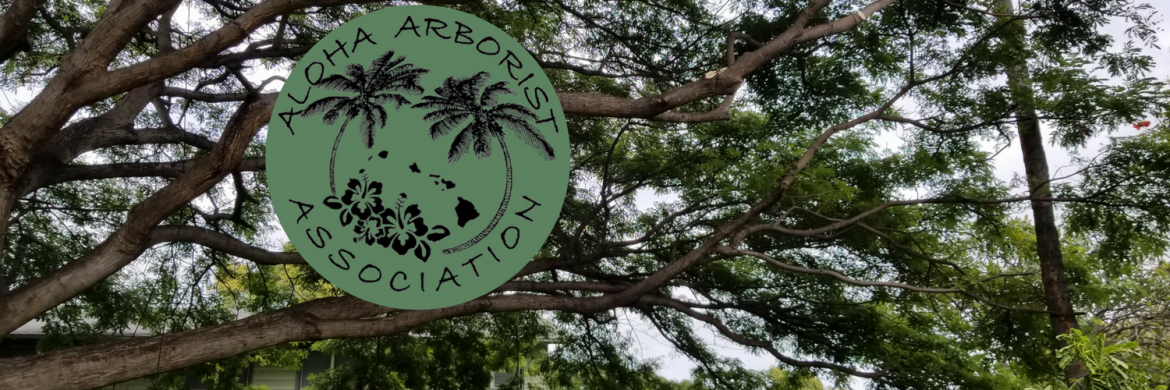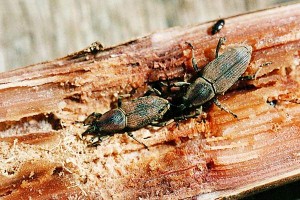Fungus: Raffaelea lauricola Hosts: avocado, camphor (Lauraceae family) Distribution: Florida, Georgia, and South Carolina Symptoms: Infects the sapwood, restricting the flow of water and causing the leaves to wilt. Wilted trees may exhibit small dowels or “toothpicks” of sawdust protruding from the stem produced by the ambrosia beetles as they bore into the wood Vector: …
Category: Pests
AAA shares pest information regularly, so that industry professionals and the public can stay informed and help protect Hawaii's trees.
Jul 02
Pest of the Month May 2012 – Asian Long-Horned Beetle (Pest Alert)
Hosts: hardwood trees (primarily genera Acer, Populus, Salix, and Ulmus, but also Aesculus, Albizia, Betula, Cercidiphyllum, Fraxinus, Platanus, Prunus, and Sorbus). Acer is the most common. Distribution: Native to China and Korea. First discovered in the U.S.in 1996. Has been found in New York, Calfornia, Washington State, Illinois, and New Jersey. Symptoms: Dead trees due …
Jul 02
Pest of the Month April 2012 – Hibiscus Erineum Mite
Hosts: Hibiscus spp., particularly the Chinese red hibiscus Distribution: Hawaii- all of the major islands; Tonga, Fiji, and other Pacific areas; Australia Damage: (1) Unsightly leaf, stem, and twig galls Management: (1) Biological control – predatory mites (2) Cultural control – consider replacing with another type of hibiscus less susceptible or with another type of plant. (3) …
Jul 02
Pest of the Month March 2012 – South American Palm Weevil
Hosts: Coconut, sago palm, Canary Island date palm, date palm, sugarcane, papaya, citrus, mango, guava, Fosberg breadfruit, banana, avocado, cocoa, and many others Distribution: South America, Mexico, Caribbean. It has been found in California and Texas but does not appear to be well-established. Description: Large, black weevil 1.3” long and 0.6” wide. Shiny when it …
Jul 02
Pest of the Month February 2012 – Fiorinia phantasma
Hosts: Most commonly palms (coconut, Manila, areca, foxtail, and bottle palms) as well as kamani, shower tree, Ficus benjamina, maio, Madagascar olive, hala, mock orange, wax leaf privet, and traveler’s palm Distribution: Philippines, Oahu, and Kihei/Wailea area of Maui Description: Armored scale. Adult females inconsistently show red stripes the width of the scale covering with …
Jun 30
Pest of the Month January 2012 – Bacterial Leaf Spot of Hibiscus
Host: Hibiscus and others, most commonly Hibiscus rosa-sinensis L. Distribution: Particularly in high rainfall areas like Kurtistown on the Big Island Symptoms: Lesions from 2-10 mmin diameter, usually surrounded by a two-color border (black next to tan-colored necrotic center and purplish-red next to the black) Dispersion: Primarily by splashing or windblown rain. Infects through wounds …
Jun 30
Pest of the Month November 2011 – Sugarcane Weevil
Hosts: Sugarcane, palms (coconut, betelnut), papaya Distribution: Most of Micronesia and Hawaii. Native to New Guinea. Symptoms: Tunnels in the interior of the stem. The entrance is usually plugged with plant fibers. In coconuts, the stem is weakened to the point of palm failure in high winds. In betelnut, the weevils frequently bore near the …
Jun 30
Pest of the Month October 2011 – Ohia Psyllid
Ohia Psyllid (several native Hawaiian species of the Family Psyllidae) Host: Ohia Distribution: Native to Hawaii Symptoms: Circular, conical, or convex galls on leaves, particularly new growth Management: Biological control by other native species (Sympiesis sp.) Because the ohia psyllids are native insects, avoid the use of pesticides as they or their parasites could become …
Jun 27
Pest of the Month September 2011 – Bacterial Leaf Blight of Panax
Host: Panax Symptoms: Lesions on young leaves have a water-soaked appearance. Mature lesions have dried brown centers and dark-colored or black margins. Lesions are sometimes surrounded by diffuse purplish or reddish halos. Blighted leaves may curl and drop prematurely. Spread by: Splashing water or windblown rain. Management: When propagating, use pathogen-free plant material. Do not …
Jun 27
Pest of the Month August 2011 – Chinese Rose Beetle
Distribution: Originally from Japan and Taiwan. Widespread through southeast Asia and Pacific Islands Hosts: Over 250 plants. Wide variety o f ornamentals and cultivated crops. Damage: Lace-like or shot with holes appearance on leaves caused by adults Management: Insignificant biological control. Green muscardine fungus destroys many larvae and adults during wet season. Pesticides not noted. Per …

